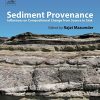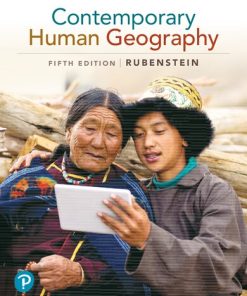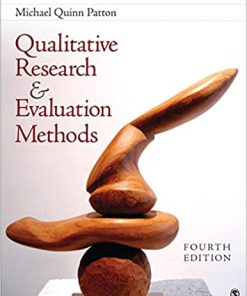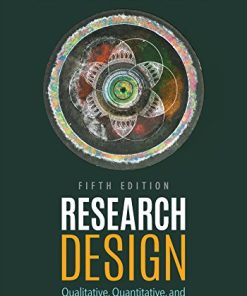Qualitative Research Methods in Human Geography 5th Edition by Iain Hay, Meghan Cope 0199034222 9780199034222
$50.00 Original price was: $50.00.$25.00Current price is: $25.00.
Qualitative Research Methods in Human Geography 5th Edition by Iain Hay, Meghan Cope – Ebook PDF Instant Download/DeliveryISBN: 0199034222, 9780199034222
Full download Qualitative Research Methods in Human Geography 5th Edition after payment.
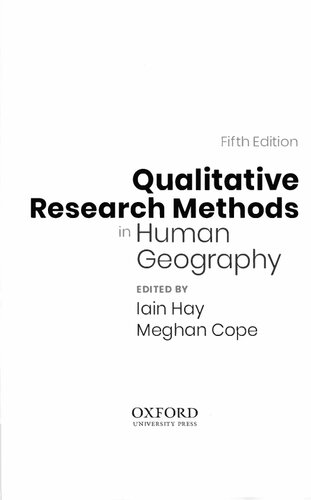
Product details:
ISBN-10 : 0199034222
ISBN-13 : 9780199034222
Author: Iain Hay, Meghan Cope
The practical, in-depth guide to understanding and conducting qualitative research in human geography. This fifth edition continues to offer a practical, in-depth guide to understanding and conducting qualitative research in human geography. Featuring contributions from leading experts from Canada, the US, Australia, and New Zealand, this revised and expanded new edition provides a diverse collection of engaging and relevant examples that illustrate the real-world application of qualitative research techniques.
Qualitative Research Methods in Human Geography 5th Table of contents:
Part I Introducing Qualitative Research
1 Where Are We Now? Qualitative Research in Human Geography
Introduction
What Use Is Qualitative Research in Human Geography?
What Are Some Examples of Qualitative Methods? What’s New in the Field?
Why Should We Trust Qualitative Research? Or, Isn’t It Just Anecdotal Storytelling?
Being in the World/Researching the World—New Dilemmas of Critical Inquiry
Exploring the Edges: Trends to Watch in Qualitative Human Geography
Conclusion
Review Questions
Review Exercise
Useful Resources
List of Key Terms
2 Power, Subjectivity, and Ethics in Qualitative Research
Introduction
Placing Power in Research
Critical Reflexivity and the Place of Positionality
Additional Modes of Ethical Accountability
Privacy and Confidentiality
Informed Consent
Potential Risk or Harm
Conclusion
Review Questions
Review Exercises
Useful Resources
List of Key Terms
3 Reaching Out: Cross-cultural Research
Introduction
What Does It Mean to Do Cross-cultural Research?
Working with Young People in the Indian Himalayas
Cross-cultural Research as Problem and Promise
Guiding Questions
What Is My Position in Relation to Power Structures?
How Will I Make My Research Meaningful across Cultural Realms?
How Will I Be Sensitive to Cultural Differences?
What Is My Timeframe?
How Will I Know I’m Getting Things Right?
What If Things Go Wrong?
What Will the Afterlives of this Research Be?
Conclusion
Review Questions
Review Exercises
Useful Resources
List of Key Terms
4 Empowering Methodologies: Feminist and Indigenous Approaches
Introduction
Feminist Research Practice
Indigenous Research
Using Empowering Methodologies
Approaching the Research
Early Beginnings: Creating a Long-Term Dialogic Relationship
Moving the Centre: Making Space for Multiple Ontologies and Polycentric Epistemologies
Research with No Guarantees: Troubling over the Research Process
Doing the Research
Employing a Multi-layered Reflexivity
Dialogic Research Tools: Reworking the Field as a Methodological Site of Agency
The Politics of the Research
Changing Ourselves: Breaking Out of the “Hall of Mirrors”
Changing Institutional Structures and Processes: From Research “for” and “with” to Research “by”
Conclusion
Review Questions
Review Exercise
Useful Resources
List of Key Terms
5 Writing a Compelling Research Proposal
What Is a Research Proposal and What Makes It Compelling?
Building Strong Research Questions
Set Your Building Blocks
Drafting the Research Proposal
Conclusion
Review Questions
Review Exercise
Useful Resources
List of Key Terms
6 Rigorous and Trustworthy: Qualitative Research Design
Introduction
Asking Research Questions
From Asking Research Questions to Conducting Research
Selecting Cases and Participants
Selecting Cases
Selecting Participants
Participant Selection
How Many Participants?
Ensuring Rigour
Conclusion
Review Questions
Review Exercises
Useful Resources
List of Key Terms
Part II Talking, Watching, Text, and Context: The Scope and Practices of Qualitative Research in Geography
7 Case Studies in Qualitative Research
What Is a Case Study?
The Historical Development of the Case Study
N=1 and the Importance of Depth and Context
Types of Case Studies
Theory Testing and Theory Generating Cases
Case Studies Across Time and Space
Time: Cross-sectional and Longitudinal Case Studies
Space: Comparative Analysis
Are Case Studies Generalizable?
Conclusion
Review Questions
Review Exercise
Useful Resources
Notes
List of Key Terms
8 “Placing” Participant Observation
Introduction: The Most Social of Methods
The Spectrum of Places, Practices, and Uses
Positionality—The Place of the Researcher and the Practice of Reflexivity
Participant Observation in Practice—Expanded Positionalities and Knowledge Co-production
Doing Participant Observation—Learning the Rules of the Game and Recording These as Data
1. Preparation
2. Start/Arrival
3. Observing Phenomena—The Emotional Labour of Participant Observation
4. Recording Data
Analyzing Participant Observation Data and Writing Up the Results
Conclusion
Review Questions
Review Exercises
Useful Resources
List of Key Terms
9 Engaging Interviews
Interviewing in Geography
Types of Interviewing
Strengths of Interviewing
Interview Design
The Interview Schedule or Guide
Types of Questions
Ordering Questions and Topics
Structured Interviewing
Semi-structured Interviewing
Unstructured Interviewing
Interviewing Practice
Contact
The Interview Relationship
Closing the Interview
Recording and Transcribing Interviews
Recording
Transcribing the Data
Assembling Field Note Files
Analyzing Interview Data
Presenting Interview Data
Interviews Using Digital Communication
Advantages of Digital Interviewing
Challenges of Digital Interviewing
The Rise of Video Call Interviewing
Conclusion
Review Questions
Review Exercises
Useful Resources
List of Key Terms
10 Listening Sensitively: Oral Histories
Understanding Oral History
What is Oral History?
Oral History as a Research Method
Doing Oral History
Preserving Oral Histories
Finding Participants
Preparing for a Recording
Acquiring Consent
Conducting the Oral History
Analyzing Oral Histories
Oral History in Practice
Concerning Spatial and Historical Inequities
Concerning Contested Places
Conclusion
Review Questions
Review Exercises
Oral Histories Referenced (in order of appearance)
Useful Resources
List of Key Terms
11 Focusing on the Focus Group
What Are Focus Groups?
Using Focus Groups in Geography
Planning and Conducting Focus Groups
Selecting Participants
Composition of Focus Groups
Size and Number of Groups
Recruiting Participants
Questions and Topics
Conducting Focus Groups
Online Focus Groups
Analyzing and Presenting Results
Conclusion
Review Questions
Review Exercises
Useful Resources
List of Key Terms
12 From Dusty to Digital: Archival Research
Introduction
What Is Archival Research?
Advice on Conducting Archival Research
Born Digital Records in the Archive
Changing Archival Practice: A Cautionary Tale
Challenges of Archival Research
Ethics and Archives
Presenting the Results of Archival Research
Conclusion
Review Questions
Review Exercises
Useful Resources
Notes
List of Key Terms
13 Using Questionnaires in Qualitative Human Geography
Introduction
Questionnaire Design and Format
Sampling
Pre-testing
Modes of Questionnaire Distribution
Maximizing Questionnaire Response Rates
Analyzing Questionnaire Data
Conclusion
Review Questions
Review Exercise
Useful Resources
List of Key Terms
14 “Where I Went Today …”: Solicited Journals and Narrative Mapping
Introduction
What Are Solicited Journals?
Using Solicited Journals in Geography
Planning and Directing Solicited Journal Activities
Selecting Participants and Recruitment
Setting Up the Journals
Pre-journal Activities, Checking In, and Debriefing
Analyzing and Presenting Results
Other Forms of Solicited Journals
Letter Correspondence as Journaling
Email Journals
Sound Journals
Other Kinds of Journals
Potentially Sensitive and Ethical Concerns
Narrative Mapping as a Means to Communicate Solicited Journaling and Other Results
Creating Narrative Maps
Conclusion
Review Questions
Review Exercises
Useful resources
On solicited journals
On narrative mapping
List of Key Terms
15 Emerging Digital Geographies
Introduction
What Is “the Digital”?
Thinking Spatially about and with Digitality: A Brief Review of the State of the Art
What Does the Digital Do?
Who Are We in the Digital World? Who Is with Us?
Putting It All Together
Conclusion
Review Questions
Review Exercises
Useful Resources
Notes
List of Key Terms
16 Participatory Action Research: Collaboration and Empowerment
What Is Participatory Action Research?
Conducting “Good” Participatory Action Research
The Value and Rewards of Participatory Action Research
Challenges and Strategies
Sharing Results
Conclusion
Review Questions
Review Exercises
Useful Resources
Helpful Online Resources
Notes
List of Key Terms
Part III Making Sense of Your Data: Co-producing Geographic Knowledge and Sharing with the World
17 Revealing the Construction of Social Realities: Foucauldian Discourse Analysis
Introducing Discourse Analysis
Doing Foucauldian Discourse Analysis
Choice of Source Materials or Texts
Suspend Pre-existing Categories: Become Reflexive
Familiarization: Absorbing Yourself in and Thinking Critically about the Social Context of Your Source Materials
Coding: Once for Organization and Again for Interpretation
Power, Knowledge, and Persuasion: Investigate Your Source Materials for “Effects of Truth”
Resilience and Rupture: Take Note of Inconsistencies within Your Sources
Silences: Silence as Discourse and Discourses that Silence
Conclusion
Review Questions
Review Exercises
Useful Resources
Note
List of Key Terms
18 Organizing, Coding, and Analyzing Qualitative Data
Introduction: How Can We Make Sense of Our Data?
Making Meaning I: Memos
Making Meaning II: Concept Mapping
Making Meaning III: Coding
Types of Codes and Coding
The Purposes of Coding
Getting Started with Coding
Developing the Coding Structure
Coding with Others
Computer-Aided Qualitative Data Analysis Software ( caqdas ) and Qual gis
Conclusion
Being in the World, Coding the World
Review Questions
Review Exercises
Useful Resources
Online Resources
Notes
List of Key Terms
19 Constructing Meaningful Geographical Knowledges, Writing Qualitative Geographies
Styles of Presentation
Positivist and Neo-positivist Approaches: Universal Objectivity
Post-positivist Approaches: Situated Knowledges
Balancing Description and Interpretation—Observation and Theory
The Role of “Theory” and the Constitution of “Truth”
Writing and Researching as Mutually Constitutive Practices
Conclusion
Review Questions
Review Exercises
Useful Resources
Notes
List of Key Terms
20 Small Stories, Big Impact: Communicating Qualitative Research to Wider Audiences
Introduction
Begin with a Story
Understanding Audiences
Engaging (with) Communities
Organizing and Representing Qualitative Findings
The Power of Qualitative Research
People also search for Qualitative Research Methods in Human Geography 5th:
qualitative research methods in human geography pdf
qualitative research methods in human geography 4th edition pdf
qualitative research methods in human geography 4th edition
qualitative research methods in human geography 2021
qualitative research methods in human geography 2010
Tags: Qualitative Research, Human Geography, Iain Hay, Meghan Cope
You may also like…
Earth Sciences - Geography
Contemporary Human Geography 5th Edition James M. Rubenstein
Ebook
Research Design: Qualitative, Quantitative, and Mixed Methods Approaches 5th Edition, (Ebook PDF)
Uncategorized
Survey Research Methods (Applied Social Research Methods Book 1) 5th Edition, (Ebook PDF)
Computers - Computer Science
Politics & Philosophy - Social Sciences
Politics & Philosophy - Social Sciences
Biography & Autobiography - Business & Finance



